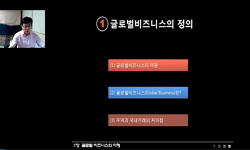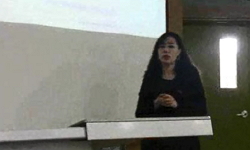We empirically evaluate whether fostering trade partnership within the region is a better economic course of action for the Gulf Cooperation Council than engaging into preferential trade arrangements with well-established trade blocs outside the regio...
http://chineseinput.net/에서 pinyin(병음)방식으로 중국어를 변환할 수 있습니다.
변환된 중국어를 복사하여 사용하시면 됩니다.
- 中文 을 입력하시려면 zhongwen을 입력하시고 space를누르시면됩니다.
- 北京 을 입력하시려면 beijing을 입력하시고 space를 누르시면 됩니다.


Deeper Integration or Wider Integration?: the case of Gulf Cooperation Council = Deeper Integration or Wider Integration?: the case of Gulf Cooperation Council
한글로보기https://www.riss.kr/link?id=A101890318
-
저자
( Houcine Boughanmi ) (Sultan Qaboos University) ; ( Ahmed Al-shammakhi ) (Sultan Qaboos University) ; ( Alessandro Antimiani ) (European Commission)

- 발행기관
- 학술지명
- 권호사항
-
발행연도
2016
-
작성언어
Korean
- 주제어
-
등재정보
KCI등재,SCOPUS,ESCI
-
자료형태
학술저널
- 발행기관 URL
-
수록면
206-233(28쪽)
-
KCI 피인용횟수
1
- 제공처
- 소장기관
-
0
상세조회 -
0
다운로드
부가정보
다국어 초록 (Multilingual Abstract)
We empirically evaluate whether fostering trade partnership within the region is a better economic course of action for the Gulf Cooperation Council than engaging into preferential trade arrangements with well-established trade blocs outside the region. We use the 8.1 version of Global Trade Analysis Project to analyze four scenarios representing various Gulf Cooperation Council trade integration paths, taking into consideration the issue of non-Tariff Barriers and trade facilitation measures. Results indicate that the Gulf Cooperation Council gain from lifting tariffs and non-tariff barriers on trade with the Greater Arab Free Trade Area subgroups and with the European Union is limited unless such barrier lifting is complemented with trade facilitation measures. With trade facilitation, the full completion of Greater Arab Free Trade Area scenario yields the highest welfare gain for the Gulf Cooperation Council, while the Gulf Cooperation Council-European Union Free Trade Agreement scenario yields positive but smaller gain. The small gain with Gulf Cooperation Council-European Union scenario is explained by the negative terms of trade effects following trade liberalization. These results underscore the importance of deepening Greater Arab Free Trade Area’s scope through introduction of trade facilitation measures as well as measures beyond merchandize trade liberalization.
참고문헌 (Reference)
1 WTO, "World Trade Report" 2015
2 Nugent, Jeffrey B, "Why does MENA trade so little?, Background paper to the MENA Development Report" World Bank 2002
3 Hoekman, B., "Trade policy, Trade Costs and Developing Country Trade" 39 : 2069-2079, 2011
4 Shepherd, Ben, "Trade costs in the Maghreb 2000-2009" 2011
5 WTO, "Trade and Public Policies: A Closer Look at Non-Tariff Measures in the 21st Century" World Trade 2012
6 ESCWA, "Trade Facilitation and Paperless Trade: Implementation Survey"
7 Houcine Boughanmi, "The Trade Potential of the Arab Gulf Cooperation Countries (GCC): A Gravity Model Approach" 경제통합연구소 23 (23): 42-56, 2008
8 Dennis, Allen, "The Impact of Regional Trade Agreements and Trade Facilitation in the Middle East North Africa Region" World Bank 2006
9 Boughanmi, H., "The Effects of Regional Trade Arrangements on Agri-food Trade: An Application of the Gravity Modeling Approach to the Arab Gulf Cooperation Countries" 5 : 46-62, 2009
10 Kerkela, Leena, "The Effect of Armington Structure on Welfare Evaluations in Global CGE-Models" 2008
1 WTO, "World Trade Report" 2015
2 Nugent, Jeffrey B, "Why does MENA trade so little?, Background paper to the MENA Development Report" World Bank 2002
3 Hoekman, B., "Trade policy, Trade Costs and Developing Country Trade" 39 : 2069-2079, 2011
4 Shepherd, Ben, "Trade costs in the Maghreb 2000-2009" 2011
5 WTO, "Trade and Public Policies: A Closer Look at Non-Tariff Measures in the 21st Century" World Trade 2012
6 ESCWA, "Trade Facilitation and Paperless Trade: Implementation Survey"
7 Houcine Boughanmi, "The Trade Potential of the Arab Gulf Cooperation Countries (GCC): A Gravity Model Approach" 경제통합연구소 23 (23): 42-56, 2008
8 Dennis, Allen, "The Impact of Regional Trade Agreements and Trade Facilitation in the Middle East North Africa Region" World Bank 2006
9 Boughanmi, H., "The Effects of Regional Trade Arrangements on Agri-food Trade: An Application of the Gravity Modeling Approach to the Arab Gulf Cooperation Countries" 5 : 46-62, 2009
10 Kerkela, Leena, "The Effect of Armington Structure on Welfare Evaluations in Global CGE-Models" 2008
11 Chen, M. X., "Standards and Export Decisions: Firm-level Evidence from Developing Countries" 7 : 501-523, 2008
12 Antimiani, A., "Regionalism versus Multilateralism: The Case of the European Union Trade Policy" 49 : 253-276, 2015
13 Fugazza, M., "Non-Tariffs Barriers in Computable General Equilibrium Modeling" UNCTAD
14 Minetti, R., "Non Tariff Measures. An Introductory Guide" 2014
15 Baldwin, R, "Multilateralizing Regionalism : Spaghetti Bowls as Building Blocs on the Path to Global Free Trade" 29 : 1451-1518, 2006
16 Al-Atrash, H., "Intra-Arab Trade: Is it too little?" IMF 2000
17 Hertel, T. W., "How Confident Can We Be of CGE-Based Assessments of Free Trade Agreements?" 24 : 611-635, 2007
18 Hertel, Thomas Warren, "Global Trade Analysis: Modeling and Applications" Cambridge University Press 2009
19 Kee, H., "Estimating Trade Restrictiveness Indices" 119 : 172-199, 2009
20 World Bank, "Economic integration in the GCC"
21 "EUROSTAT"
22 World Bank, "Doing business 2014"
23 UNESCAP, "Designing and implementing trade facilitation measures in Asia and the Pacific"
24 Hoekman, B., "Changes in Cross-Border Trade Costs in the Pan-Arab Free Trade Area, 2001-2008" World Bank 2009
25 ESCWA, "Assessing Arab Economic Integration: Towards the Arab Customs Union"
26 ESCWA, "Arab Integration: 21 Century Development imperative"
27 Malcolm, Gerard, "Adjusting Tax Rates in the GTAP Data Base" GTAP 1998
동일학술지(권/호) 다른 논문
-
Financial and Economic Growth in Europe: Is the Euro Beneficial for All Countries?
- 세종대학교 경제통합연구소
- ( Iordanis Kalaitzoglou )
- 2016
- KCI등재,SCOPUS,ESCI
-
Development of Regionalism: New Criteria and Typology
- 세종대학교 경제통합연구소
- ( Yoo-duk Kang )
- 2016
- KCI등재,SCOPUS,ESCI
-
Economic Integration in ASEAN+3: A Network Analysis
- 세종대학교 경제통합연구소
- ( Thi Nguyet Anh Nguyen )
- 2016
- KCI등재,SCOPUS,ESCI
-
Debt or Wage-led Growth: the European Integration
- 세종대학교 경제통합연구소
- ( Elena Makrevska Disoska )
- 2016
- KCI등재,SCOPUS,ESCI
분석정보
인용정보 인용지수 설명보기
학술지 이력
| 연월일 | 이력구분 | 이력상세 | 등재구분 |
|---|---|---|---|
| 2023 | 평가예정 | 해외DB학술지평가 신청대상 (해외등재 학술지 평가) | |
| 2020-01-01 | 평가 | 등재학술지 유지 (해외등재 학술지 평가) |  |
| 2011-06-07 | 학회명변경 | 한글명 : 국제경제연구소 -> 경제통합연구소영문명 : Center for International Economics -> Journal of Economic Integration |  |
| 2010-01-01 | 평가 | 등재학술지 유지 (등재유지) |  |
| 2008-01-01 | 평가 | 등재학술지 유지 (등재유지) |  |
| 2006-01-01 | 평가 | 등재 1차 FAIL (등재유지) |  |
| 2004-01-01 | 평가 | 등재학술지 유지 (등재유지) |  |
| 2001-07-01 | 평가 | 등재학술지 선정 (등재후보2차) |  |
| 1999-01-01 | 평가 | 등재후보학술지 선정 (신규평가) |  |
학술지 인용정보
| 기준연도 | WOS-KCI 통합IF(2년) | KCIF(2년) | KCIF(3년) |
|---|---|---|---|
| 2016 | 0.11 | 0.11 | 0.13 |
| KCIF(4년) | KCIF(5년) | 중심성지수(3년) | 즉시성지수 |
| 0.13 | 0.11 | 0.279 | 0.03 |




 KCI
KCI KISS
KISS




